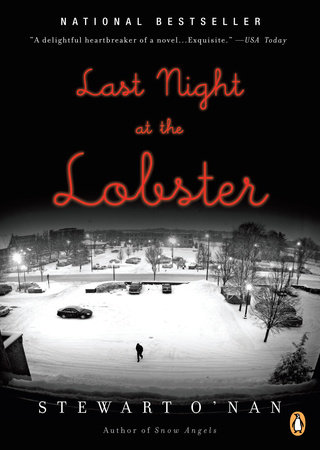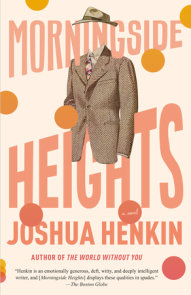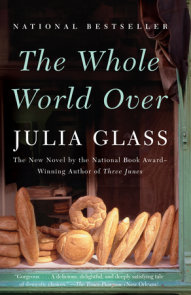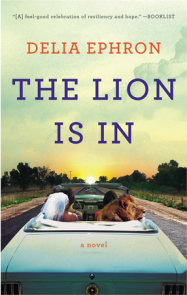READERS GUIDE
Questions and Topics for Discussion
INTRODUCTION
There are only four shopping days left until Christmas when Manny DeLeon pulls his beat-up Buick Regal into the parking lot at the Red Lobster—his Red Lobster—at least for one more day. He’s been the general manager of the New Britain location for years and has come to feel a justified pride in its smooth performance. So the news that Darden Restaurants, Inc., plans to close the branch, demote him to assistant manager at a nearby Olive Garden, and fire thirty-nine of the forty-four employees he supervises was a shock that Manny wasn’t happy to face.
The past year had already been a rough one. His abuelita (“grandmother” in Spanish), who raised him, had passed away, the waitress he’d fallen madly in love with had ended their brief but joyful affair, and his less beloved girlfriend had become pregnant and was soon due to deliver their child. But Manny doesn’t indulge in self-pity as he matter-of-factly prepares the restaurant for its final day of service.
He is a little worried about who will show up for work. Since most of the staff has already been let go, he’s been running things with a skeleton crew, and keeping them motivated has been tough. To make things worse, a nor’easter is threatening to keep all but the most conscientious workers at home, and Manny fears no snowstorm is going to keep holiday shoppers away from the neighboring mall—which means potentially cranky diners come lunchtime.
As Manny’s staff slowly trickles in, he feels some relief but finds his worry shifting over to his personal life. Deena, his girlfriend, is pressuring him to marry her, and he’s got to find time to get her a “romantic” Christmas present, when he’s really fantasizing about how to win back Jacquie before the restaurant closes and she walks out of his life forever. But as they open up for lunch, his thoughts return to managing tensions in the kitchen and between the wait staff.
He’s even more short-staffed than he feared, but not so much so that he’s willing to close—especially when he can help out bussing tables. While the lunch crowd turns out to be smaller than he expected, it’s also more demanding, and a spoiled toddler and an office-party of fourteen run everyone ragged to the point of mutiny. Yet Manny manages to maintain a degree of decorum: placating, mediating, and toiling on as the hours and minutes tick down to this Lobster’s irrevocable end.
Stewart O’Nan has been hailed as “the bard of the working class,” and he has crafted here a powerful and vividly real day-in-the-life of an American everyman that ponders the value of honor and the measure of a man’s achievement weighed against the corporate bottom line and asks where, in the midst of it all, is there a place for love?
ABOUT STEWART O’NAN
Stewart O’Nan is the author of ten novels, including Snow Angels and A Prayer for the Dying, as well as works of nonfiction, including the bestselling book with Stephen King on the Boston Red Sox, Faithful. Granta named him one of the twenty Best Young American Novelists in 1995. He lives with his family in Avon, Connecticut.
A CONVERSATION WITH STEWART O’NAN
Q. Although many of your novels depict the lives and struggles of everyday people, this is something of a departure for you. What inspired Last Night at the Lobster?
A. A town over from us, the regulars showed up one Sunday morning to their local Red Lobster and found the front doors locked. Just as in the book, Darden Restaurants, Inc., decided that location’s receipts weren’t good enough and shut it down. When I read about it in the paper, I thought back to my experience working in kitchens and how each layer (management, cooks, waitstaff, kitchen) becomes both its own little territorial group yet also part of the functioning whole, and while people may bitch and squabble (and even despise each other), they’re like a family. Here was a family, and a whole little world, that had disappeared overnight.
Q. Since the locale is so critical to your story, what made you choose the Red Lobster?
A. People consider chain restaurants soulless noplaces, boxes out along the commercial strip. They’re everywhere, and to most people unremarkable, as bland as the food they serve. I liked the fact they’re overlooked, hidden in plain sight. And Red Lobster’s not cheap. It’s not fast food, and yet it’s not a real restaurant either, just a copy of a corporate ideal. It’s a completely American in-between zone, a natural stage for my people.
Q. Did you inform anyone at Darden Restaurants of your intentions? If so, what was their response?
A. I didn’t tell anyone at Darden. I didn’t want any official help or interference. Better to snoop around on my own.
Q. Your attention to detail is incredible. How did you conduct your research? What were some of the more interesting or startling facts you uncovered?
A. I went to a bunch of different Red Lobsters and other restaurants and kitchens. I lurked around, taking notes and pictures, grabbed some menus. I rooted out some blogs written by employees; but just talking with people who worked there and watching and listening to the front and back of the house in action, the way people treat each other, the small everyday dramas—that was the best.
The most startling fact to me, thinking about Manny, is that Darden doesn’t sell franchises, so a manager of a Red Lobster or Olive Garden has all the daily responsibilities of an owner but none of the privileges. He or she can put all of his or her hard work and pride into the place and have it snatched away at the whim of the home office.
Q. The characters are so simply yet so perfectly sketched and you’ve really captured the nuances of the work dynamic. It’s hard to believe that they aren’t all real people. Did you base any of them on your own experience?
A. It’s a small group, and Manny has to rely on them so heavily—and is so keyed-up for this last double shift—that every exchange is weighted. After so long, at such close quarters, he thinks he knows exactly what he can expect from them, and yet they continually surprise him, because his hopes for the day are just too high, and no one cares as much as he does.
Most of the characters are based on people I knew from my days working in kitchens. A few—Roz, Ty, Eddie, Leron, Jacquie—are very close to the originals (Roz is Roz’s real name, and there was a Fat Kathy who fought with her boyfriend in the parking lot), but I see them as separate from them, with lives that extend well beyond the borders of the story.
Q. Would it be fair to say that the marlin in this novel is related to another literary marlin?
A. I hadn’t actually thought of the Old Man’s big fish, but it sort of fits. Manny tries to see some grandeur and dignity in this debased and doomed version of the marlin. And he hopes to show some grace under pressure. Though I should say that the book’s true literary ancestor is Dickens’s A Christmas Carol, with Darden Restaurants as Scrooge and Manny as Bob Cratchit, Eddie as Tiny Tim..
Q. Is Manny ultimately meant to be a hero or a loser?
A. Manny is like Larry in The Names of the Dead or Jacob in A Prayer for the Dying or Patty in The Good Wife. He’s a decent person doing his best for everyone in an impossible situation, and he’s alone. He’s responsible and committed to this hopeless task (and quest) when everyone else thinks he should forget about it. Is Don Quixote a hero or a fool? Another early model for Last Night was High Noon, with Manny as Gary Cooper. I think Manny knows a lot about work and honor and loyalty, as antiquated as those notions are in the face of his situation. In the end he may lose everything, but he doesn’t lose himself.
Q. You preface the novel with a quote by the Pulitzer Prize–winning Latino poet Luis Alberto Urrea. It’s about the anonymous “vatos never in a poem.” Was Manny always meant to be a Latino character, and how does his ethnic identity affect the story?
A. Manny was there from the very beginning, driving to work in his abuelita’s car, his sole inheritance. He’s an unsung guy, like most of the folks I write about. He’s not exceptional or hip or flamboyant. He’s not someone who would consider himself interesting. Like the Red Lobster, he’s everywhere in America but rarely, if ever, heard from. His ethnicity is an irreducible part of him, intertwined with his pride and his love and his grief. While it sets him apart from the Lobster’s clientele (mostly suburban white Anglo women), it also means that he feels completely at home in New Britain and with anyone and everyone who works alongside him. He knows the value of work, and the cost of hope.
Q. What is your biggest challenge as a writer? What part of the job do you enjoy most?
A. My biggest challenge and the part of the job I love the most are the same: letting the reader feel what it’s like to be someone they otherwise might never think of.
Q. What are you working on now?
A. I’m finishing a summer novel about a small Ohio town on Lake Erie and an eighteen-year-old girl who disappears. In tone and landscape it reminds me somewhat of Snow Angels, meaning it’s very sad but has some hard-won light at its core. I guess it’s like many of my books in that it’s about how we find the hope to go on.
And by the way, thanks for reading my books. I know they’re not always easy and not always fun, but I do hope they’re true.
DISCUSSION QUESTIONS




















